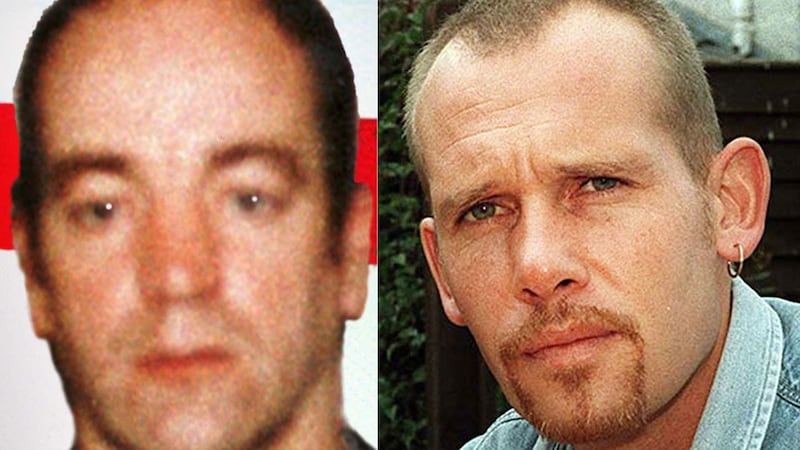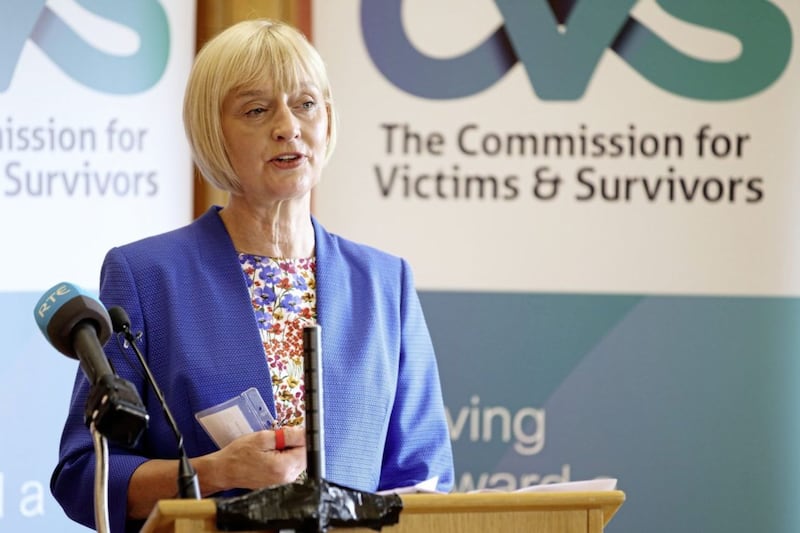A former member of the Victims' Forum whose mother was killed by a UVF bomb has called on the British government not to delay implementing a pension for those seriously injured during the Troubles.
Jude Whyte, who supports including a small number of people injured while carrying out attacks in the scheme, believes the long-awaited measures will be stalled again if Stormont is restored.
The 63-year-old, whose mother Peggy Whyte was killed alongside 22-year-old RUC officer Michael Dawson in a bomb blast outside her home on Belfast's University Street in 1984, was speaking as victims' commissioner Judith Thompson published advice to the government.
At an event at Stormont yesterday, Ms Thompson said the pension plan had broad political support and legislation to introduce payments for the most severely and permanently afflicted needed to be passed at Westminster.
The payments of around £5,000-a-year would go to hundreds of people left with physical and psychological Troubles-related injuries, which have left them unable to work or earn their own pension.
Objections have been raised against including a small number of people who were injured while carrying out attacks. It is understood there are less than 10 people in this category.
"Whilst I acknowledge that there are sensitivities around eligibility for a pension, I am also very conscious that we have broad political agreement that this needs to be done for these people," Ms Thompson said.
"We have a clear moral imperative to do it and there needs to be implementation now."
The commissioner has recommended the pension be tiered according to the severity of injury and backdated to the December 2014 Stormont House Agreement.
However, the family of a UDR man injured in an IRA bombing said they will reject a pension if former paramilitaries are eligible.
Grant Weir from Co Fermanagh was 22 when he was left brain-damaged by a bomb 40 years ago.
His sister Debbie Palmer told the BBC that a victim's pension would "make a massive difference" to the family.
"However, if that also meant that potentially the... people responsible for blowing up Grant... would have an entitlement to that same pension... it's beyond belief," she said.
For Jude Whyte the distinction between perpetrators and victims is less clear cut.
A year before his mother was killed, Mrs Whyte had comforted another UVF bomber who lay dying outside her home after the device exploded prematurely.
Mr Whyte knows the perpetrator may be eligible for a pension but does not object.
"I believe the people who planted bombs are as much a victim of the toxic society as those they set out to hurt," he said.
"I don't think our society can move on if we can't get over these hurdles."
He added: "We need this done before devolution is restored because the DUP and Sinn Féin will never agree to it, meaning the opportunity will be lost."
Sinn Féin's Linda Dillon said payments should be made to "all seriously physically and psychologically injured", while the SDLP's Dolores Kelly said she understood the difficulties for some people but believes payments should be made on the basis of the definition of a victim set out in 2002 legislation.
The DUP is seeking to have the definition changed at Westminster, while the Ulster Unionists said the party "cannot condone financially rewarding those who inflicted such pain on others".
Alliance said it was wrong that the process was held up by a "debate on whether what amounts to fewer than 10 people are considered to be eligible or not".








